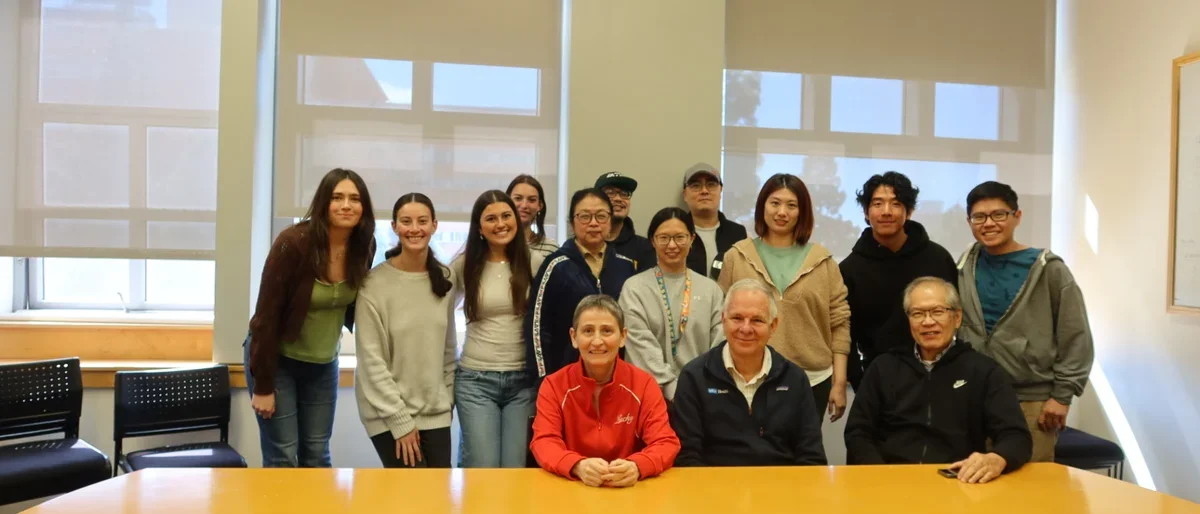Young Research Lab
Young Lab

About Our Research
Stephen G. Young, along with two UCLA faculty colleagues (Anne P. Beigneux and Loren G. Fong), identified a GPI-anchored endothelial cell protein, GPIHBP1, that is required for the intravascular processing of triglyceride-rich lipoproteins (TRLs). We went on to show that GPIHBP1 binds lipoprotein lipase (LPL) in the interstitial spaces and shuttles it across endothelial cells to its site of action in the capillary lumen. In the absence of GPIHBP1, LPL remains stranded in the interstitial spaces, and TRL processing is severely impaired (resulting in severe hypertriglyceridemia). GPIHBP1 is also required for the margination of TRLs along capillaries (allowing LPL-mediated triglyceride processing to proceed). In the absence of GPIHBP1, lipoproteins never stop along capillaries. Along with Michael Ploug (Copenhagen, Denmark), we showed that the binding of GPIHBP1 to LPL preserves the structural integrity of LPL as well as its enzymatic activity.
The consequences of LPL deficiency and GPIHBP1 deficiency in humans are identical—impaired TRL processing and severe hypertriglyceridemia. We have identified multiple GPIHBP1 mutations associated with hypertriglyceridemia; all of the mutations abolish the ability of GPIHBP1 to bind LPL. We also identified LPL mutations that abolish the ability of LPL to bind to GPIHBP1. Recently, our group showed that some acquired cases of hypertriglyceridemia are caused by GPIHBP1 autoantibodies. GPIHBP1 autoantibodies block the ability of GPIHBP1 to capture LPL and transport the enzyme to the capillary lumen.
We have worked closely with Robert Konrad to understand the hypertriglyceridemia in the setting of APOA5 deficiency. We found, using a combination of biochemical and imaging methods, that the hypertriglyceridemia is caused by reduced amounts of LPL inside capillaries. We also showed that APOA5 functions to suppress the ability of the ANGPTL3/ANGPTL8 complex to detach LPL from its binding sites within capillaries.
Dr. Young is an elected member of the National Academy of Sciences.
Principal Investigator
Stephen G. Young
sgyoung@mednet.ucla.edu
Collaborators
Loren Fong
lfong@mednet.ucla.edu
Anne Beigneux
abeigneux@mednet.ucla.edu
Recently Published
GPIHBP1, lipoprotein lipase, and triglyceride-rich lipoproteins in capillaries of the choroid plexus and circumventricular organs. The Journal of clinical investigation vol. 135,19 e191867. 1 Oct. 2025, doi:10.1172/JCI191867
The Accumulation of Progerin Underlies the Loss of Aortic Smooth Muscle Cells in Hutchinson-Gilford Progeria Syndrome. bioRxiv [Preprint]. 2024 Nov 3:2024.10.29.620896. doi: 10.1101/2024.10.29.620896.PMID: 39554077 Free PMC article. Preprint.
Distinct strategies for intravascular triglyceride metabolism in hearts of mammals and lower vertebrate species. JCI Insight 9(20): e184940. PMC11529983
Progerin forms an abnormal meshwork and has a dominant-negative effect on the nuclear lamina. Proc Natl Acad Sci USA. 121(27):e2406946121. doi: 10.1073/pnas.2406946121. PMID: 38917015. PMC11228511.
APOA5 deficiency causes hypertriglyceridemia by reducing amounts of lipoprotein lipase in capillaries. (2024) J. Lipid Res. 65(7):100578. doi: 10.1016/j.jlr.2024. PMID: 38880127. PMC11299584.
Carboxyl-terminal sequences in APOA5 are important for suppressing ANGPTL3/8 activity. Proc Natl Acad Sci USA 121(17) e2322332121. PMID: 38625948 PMC11046700.
News & Awards
- Stephen G. Young, M.D. was elected to the US National Academy of Sciences (2016).
- Stephen G. Young, M.D. was elected as a Corresponding Member Abroad of the Austrian Academy of Sciences (2022).
- Stephen G. Young, M.D. was elected as an Inaugural Fellow of the American Society of Biochemistry and Molecular Biology (the only UCLA scientist—to be so honored).
- Stephen G. Young, M.D. received a perfect score on his renewal application for the NHLBI R35 “Outstanding Investigator” award.
- Loren G. Fong, Ph.D. received an NIH R01 grant on molecular mechanisms of hypertriglyceridemia (the percentile score was 3%).
- Loren G. Fong, Ph.D., Anne P. Beigneux, Ph.D., and Stephen G. Young have been funded by a Leducq International Network grant on plasma triglyceride metabolism (2024).
- Ye Yang received the prestigious Arnold J. Berk Research Achievement Award from UCLA’s Molecular Biology Institute.
- Ye Yang received the prestigious UCLA Popjak Scholar Award (2025).
- Wenxin Song, Ph.D. received an American Heart Association Postdoctoral Fellowship for the second time, with both of her fellowship applications scoring <3 percentile.
- Wenxin Song, Ph.D. received the prestigious UCLA Popjak Scholar Award (2024).